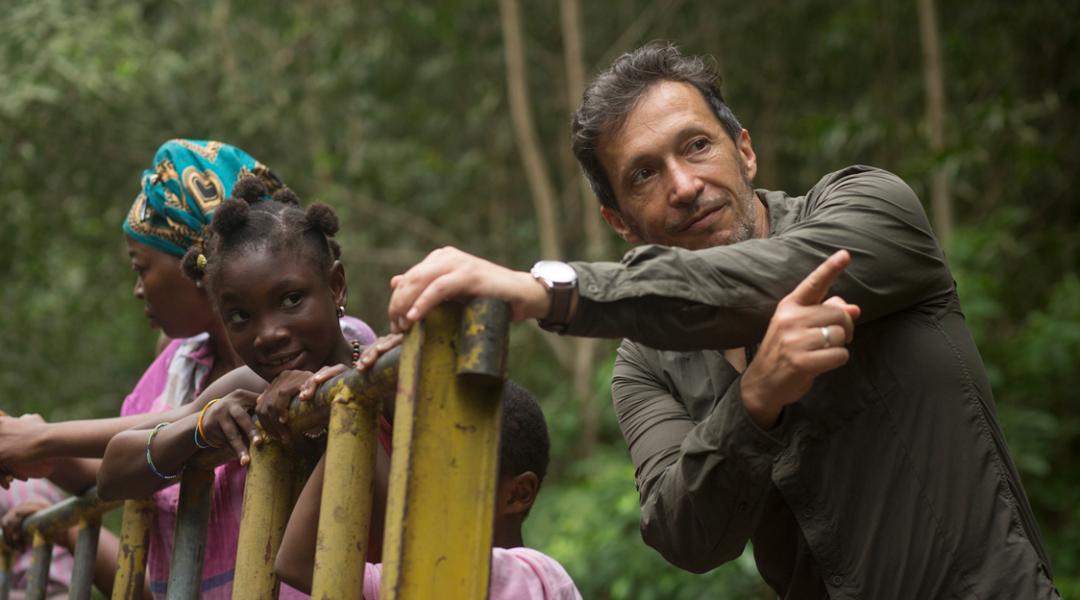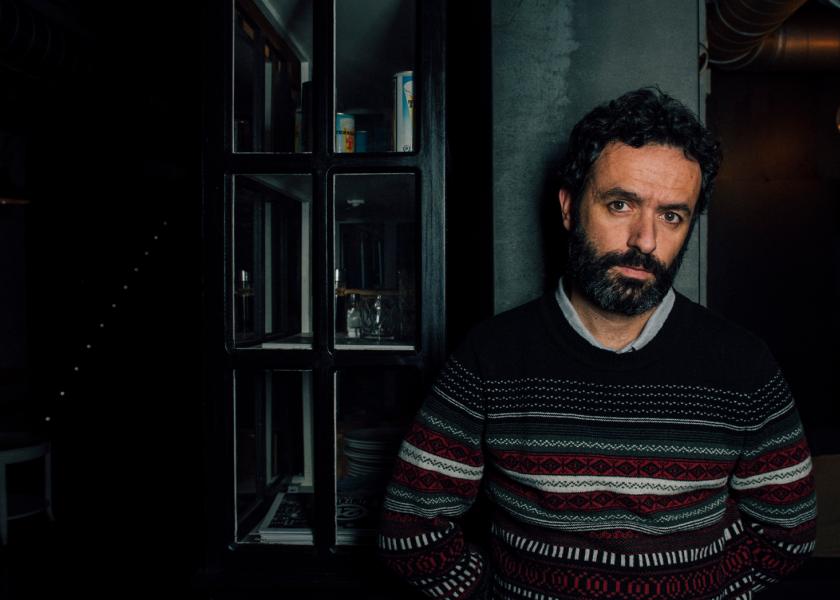Salvador Calvo
Stories To Be Told

The director returns to cinema with ‘Adú’, a tale that makes the audience ask itself how or why many of the things that surround us happen. We talk to Salvador Calvo about film and TV, and how digital platforms are quickly changing an industry in which, today, all well-told stories have their place.
Something unexpected has happened lately at the ticket offices in Spanish cinemas: the most-seen titles are not large American productions, but a small South-Korean gem that took the Oscars by storm, Parasite, and the Spanish film Adú, a story that aims to make the audience think, a bittersweet adventure that leaves its mark. Salvador Calvo (Madrid, 1970) the director of this film, has extensive experience in TV, directing a multitude of well-known series and miniseries, and his previous feature film, 1898, Our Last Men in the Philippines, hinted at this Madrid director’s taste for complex storylines, “far from comedy and with a message”.
Film has been a constant in Salvador Calvo’s life since he was young: “My father, who was a scriptwriter and TV director, would sneak us into Woody Allen films and bribe the usher because they were 16+ (laughs)”. Today, for the director, “the line between film and TV is more and more blurred: with the arrival of platforms, the audience has become more niche. Themed series that were unthinkable in the past are made, and there no longer has to be a family, an old man and a dog to reach the general audience. Today, everything that is good quality is valid and a psycho killer can be the hero of a successful series”, he assures us.
“The line between film and TV is more and more blurred. Themed series that were unthinkable in the past are made”
In the era of digital platforms, a director like Salva Calvo, a regular on TV with titles such as Alakrana, Stolen Children or Los nuestros, has watched Spanish producers and actors become global phenomena. “I met Miguel Herrán, from Money Heist, when we filmed Our Last Men in the Philippines. He was starting out then, and now he’s a star worldwide. It’s a crazy experience, with its ups and downs”, he tells us. Following this globalising trend, Salvador Calvo’s first feature film was bought by a platform and has been distributed internationally: “It’s exciting that the story of the last men in Baler reaches so many people. I’ve received messages from around the world; my family in Las Vegas saw it at home, in their living room; that’s amazing (laughs)”.
“Also, technically, that barrier hardly exists anymore, and this has meant that series photography and production enjoy a greater cinematic quality that just a few years ago”, he explains. Paying particular attention to photography is one of the keys of the director’s job. An amateur painter since he was a child, he now makes his own storyboards for his films. “Maybe this is reflected in the filming; my storytelling is very visual. I’m not the only one; Álex de la Iglesia, for example, also draws. This is a personal theory, but I think that a good director’s job is threefold: firstly, as a director of actors, but also regarding the script, which is fundamental to storytelling, and filming”, he explains.
More personal stories in a global world
Launching in international markets has paradoxically given us the chance to make more personal projects, stories that would have been impossible to carry out before. “When telling stories, we can reach small minorities that when brought together worldwide make up a majority, and that’s wonderful both in film and TV”, he says. “This allows a story like ours, which in principle is a social film, combined with a bit of adventure, to also work in the ticket office because it has the opportunity of being seen”, the director of Adú assures us. For someone that also loves travel literature, filming in Benin, where a film production had never been held before, was a fascinating experience: “Africa is a place that takes you to another universe, another time, you travel in time...”.
“I love this committed film-making, travelling, and being able to tell stories that have left an impression on me or that are inspired by something that I’ve experienced somehow. Years ago, there was no room for this kind of film in Spain, and now there is”, he says. His role models are “those that combine travel, adventure and social film; diverse films like Peter Weir’s, the director of Master and Commander or Dead Poets Society”. Films that, according to Calvo, Adú shares its spirit with: “More than answering questions, this film makes you ask yourself questions. It leaves a mark without being a one-way conversation or trying to convince anyone about anything”.
Times are changing when it comes to production and distribution, but especially when it comes to which stories are told and how they’re told. For this director from Madrid, the key to the great quality that the Spanish film industry is currently making lies in this broad range of themes: “We’re having a great time, with diverse films, bold proposals and plenty of talent. There are blockbusters”.




